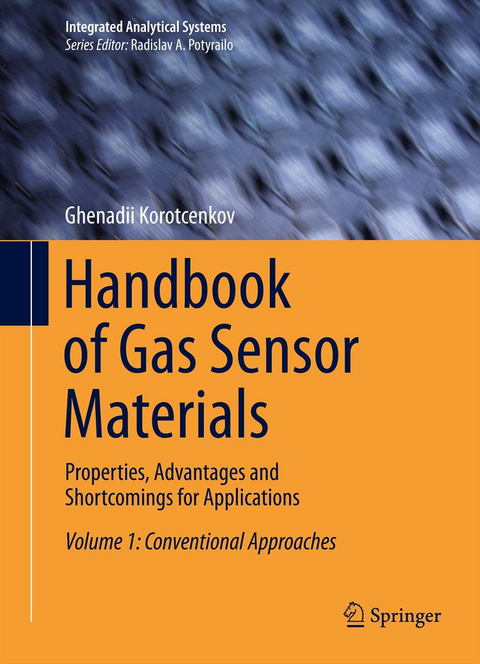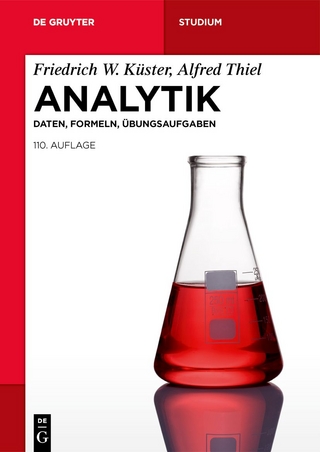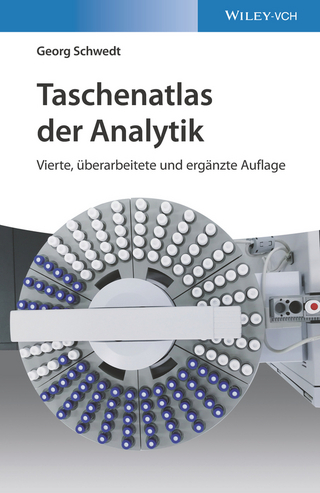
Handbook of Gas Sensor Materials
Springer-Verlag New York Inc.
978-1-4614-7164-6 (ISBN)
The two volumes of Handbook of Gas Sensor Materials provide a detailed and comprehensive account of materials for gas sensors, including the properties and relative advantages of various materials. Since these sensors can be applied for the automation of myriad industrial processes, as well as for everyday monitoring of such activities as public safety, engine performance, medical therapeutics, and in many other situations, this handbook is of great value. Gas sensor designers will find a treasure trove of material in these two books.
Ghenadii Korotcenkov has more than 40 years experience as a teacher and scientific researcher. He received his Ph.D. in Physics and Technology of Semiconductor Materials and Devices in 1976, and his Habilitate Degree (Dr. Sci.) in Physics and Mathematics of Semiconductors and Dielectrics in 1990. For many years, he led the scientific Gas Sensor Group and managed various national and international scientific and engineering projects carried out in the Laboratory of Micro- and Optoelectronics, Technical University of Moldova. Since 2008, Korotcenkov has been a research Professor in Gwangju Institute of Science and Technology, Republic of Korea. Korotcenkov’s research results are well-known in the study of Schottky barriers, MOS structures, native oxides, and photoreceivers on the base of III-Vs compounds. His current research interests include material sciences and surface science, focused on metal oxides and solid state gas sensor design. Korotcenkov is the author or editor of sixteen books and special issues, twelve invited review papers, nineteen book chapters, and more than 190 peer-reviewed articles. He is a holder of 18 patents. Recently, his articles had more than 250 cites per annum. His research activities have been honored by Award of the Supreme Council of Science and Advanced Technology of the Republic of Moldova (2004), The Prize of the Presidents of Ukrainian, Belarus and Moldovan Academies of Sciences (2003), Senior Research Excellence Award of Technical University of Moldova (2001; 2003; 2005), Fellowship from International Research Exchange Board (1998), National Youth Prize of the Republic of Moldova (1980), among others.
Conventional gas sensing materials.- Auxiliary materials.- Materials for specific gas sensors.- Nanostructured gas sensing materials.- Other trends in design of gas sensor materials.- Nanocomposites.- Stability of gas sensing materials and related processes.- Structure and surface modifications of gas sensing materials.- Technology and sensing material selection.
| Reihe/Serie | Integrated Analytical Systems |
|---|---|
| Zusatzinfo | 220 Illustrations, black and white; XIX, 442 p. 220 illus. |
| Verlagsort | New York, NY |
| Sprache | englisch |
| Maße | 178 x 254 mm |
| Themenwelt | Naturwissenschaften ► Chemie ► Analytische Chemie |
| Naturwissenschaften ► Chemie ► Physikalische Chemie | |
| Technik ► Elektrotechnik / Energietechnik | |
| Technik ► Maschinenbau | |
| Schlagworte | Composite material • Electrochemical Sensor • Gas Sensor Material • Metal Oxide Sensor • Polymer-Based Sensor • Quantum dots • Semiconductor Sensor • Stability of Gas Sensing Material • zeolite |
| ISBN-10 | 1-4614-7164-8 / 1461471648 |
| ISBN-13 | 978-1-4614-7164-6 / 9781461471646 |
| Zustand | Neuware |
| Haben Sie eine Frage zum Produkt? |
aus dem Bereich


